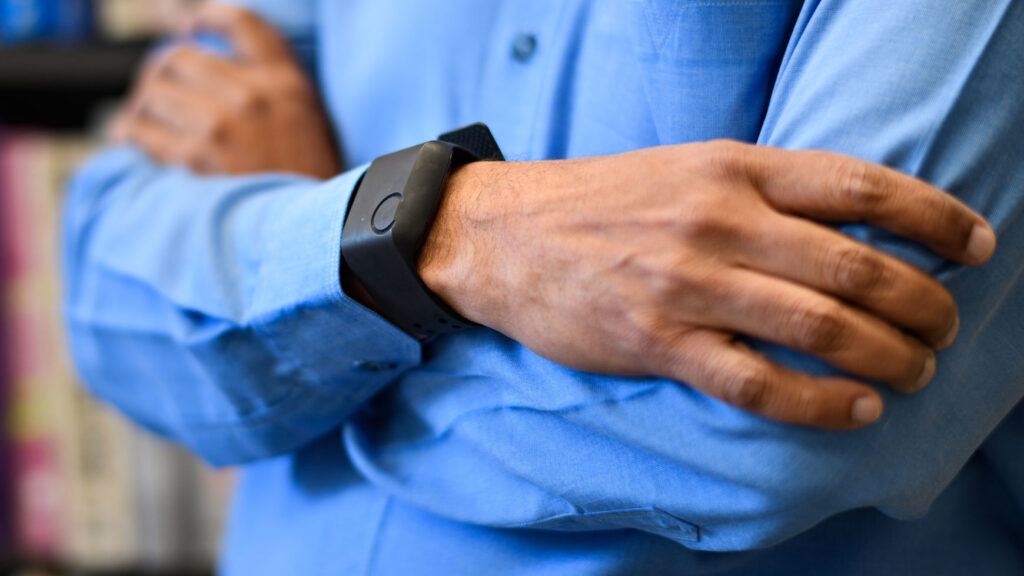The Rise of Wearable Technology in Healthcare
Wearable technology has become increasingly popular in the world of healthcare. Devices like fitness trackers, smartwatches, and heart rate monitors are now widely available, allowing individuals to track everything from daily steps to heart rate, sleep patterns, and even blood oxygen levels. In fact, wearables have made significant strides in empowering patients to take control of their own health. But despite the growing popularity of these gadgets, there remains a strong sense of skepticism among doctors and healthcare professionals.
Related:
Exploring Wearable Technology www silicon-insider.com wearable tech
The Benefits of Wearables
Before delving into the reasons behind doctors’ hesitation, it’s important to understand the potential benefits of wearables. These devices offer patients continuous health monitoring and provide valuable data that can be used for preventive care and early diagnosis.
Empowering Patients
One of the main advantages of wearables is how they empower patients. Instead of waiting for their next doctor’s appointment to discuss their health, patients can track and manage their own data on a daily basis. For example, smartwatches like the Apple Watch and Fitbit can monitor heart rate, steps taken, calories burned, and even detect irregularities like atrial fibrillation. This kind of immediate feedback can motivate patients to make healthier choices and stay on top of their wellness.
Enhancing Preventative Care
Wearables have the potential to revolutionize preventative care by providing real-time data that can help doctors catch health issues early. For instance, a continuous glucose monitor (CGM) can help people with diabetes track their blood sugar levels in real time, reducing the risk of dangerous spikes or drops. Similarly, wearables can detect signs of high blood pressure, sleep apnea, and other chronic conditions before they become more serious.
Why Doctors Are Skeptical of Wearables
Despite these clear benefits, many doctors remain skeptical about incorporating wearables into their practice. There are several key reasons for this hesitation, and understanding them can provide insight into the challenges that still need to be overcome.
Data Accuracy and Reliability
One of the biggest concerns for doctors is the accuracy of the data that wearables collect. While these devices are marketed as being reliable, their readings are often less precise than those taken in a clinical setting. For example, a smartwatch might track a patient’s heart rate or steps, but these measurements can be influenced by a number of factors—such as improper positioning or external factors like temperature—that might lead to inaccurate results.
Doctors rely on accurate and consistent data to make critical medical decisions, so if wearables aren’t providing reliable information, this could lead to incorrect diagnoses or unnecessary treatments. This is especially problematic for doctors who are working with patients who have complex medical histories or multiple conditions.
Lack of Integration with Medical Systems
Another issue that doctors have with wearables is the lack of integration with existing healthcare systems. In an ideal scenario, the data collected by wearables would seamlessly integrate with electronic health records (EHRs) so that doctors could easily access it during consultations. Unfortunately, many wearables are designed to operate independently, meaning patients must manually upload their data to a separate app or platform.
This lack of integration creates a disconnect between the data that patients track and the medical information that doctors rely on. As a result, doctors are often unable to incorporate this information into their clinical decision-making, which can limit the overall utility of wearables in healthcare.
Also Read:
The Metaverse Revolution: Virtual Worlds Turn Into Reality
Privacy and Security Concerns
The use of wearables also raises significant privacy and security concerns. Health data is incredibly sensitive, and wearables often collect a vast amount of personal information about a patient’s daily activities, health metrics, and even sleep patterns. This information could be at risk if not properly protected, leading to potential breaches of privacy.
Data Protection Challenges
In recent years, there have been increasing concerns about data breaches and the vulnerability of personal health information. Wearable companies may store user data on third-party servers, making it susceptible to hacking and misuse. For healthcare providers, who are already bound by stringent regulations like HIPAA (Health Insurance Portability and Accountability Act), the security of health data is a top priority. This leads to hesitancy when it comes to incorporating wearables into medical practice.
The Need for Evidence-Based Research
While wearables have great potential, doctors are hesitant to fully embrace them without more evidence that they are effective in a clinical setting. Although wearables have shown promise in managing chronic conditions like diabetes and heart disease, there is still a lack of large-scale, peer-reviewed studies that demonstrate their long-term benefits and safety.
Limited Peer-Reviewed Studies
For doctors to confidently use wearables in their practice, there needs to be more clinical evidence backing their efficacy. Currently, many of the studies available are small-scale or not rigorously conducted. Until more robust research is published, doctors may remain cautious about recommending wearables to their patients.
The Future of Wearables in Healthcare
Despite the current skepticism, the future of wearables in healthcare is bright. As technology continues to evolve, we can expect more accurate, reliable devices that integrate seamlessly with medical systems. Furthermore, the growing body of evidence supporting the benefits of wearables in chronic disease management and preventative care will likely encourage more doctors to adopt them.
Conclusion
While wearables offer incredible potential to improve patient care and empower individuals to take charge of their health, doctors remain cautious for good reason. Concerns about data accuracy, privacy, and the need for more clinical research are valid, and they highlight the need for better integration and regulation in the wearable health space. As the technology matures and more evidence becomes available, we can expect to see greater acceptance of wearables in healthcare.


